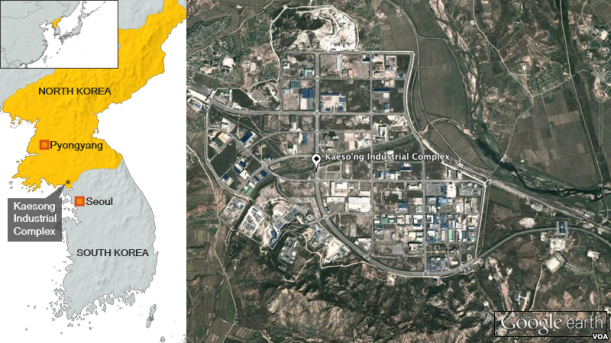Robert Steininger
In the growing age of globalization and the rise in the use of technology, many have difficulties disconnecting from work. Smartphones have replaced the computer, the newspaper, the telephone, and much more. We are always connected, and that connection is just as tied to our employer as it is to our personal lives. Companies are starting to realize that their employees health and production have been negatively effected. One country has taken the initial steps necessary to reestablish the wall between employees’ personal and work life.[i]
On May 10, 2016, the French government used a constitutional provision to push through the El Khomri law. The law is named after Labor Minister Myriam El Khomri. Many provisions in the law were seen to benefit employers at the expense of employees, and therefore not welcomed by the French people. However, the most well liked article had the employees’ needs in mind. The law went into effect on January 1, 2017, in which France now requires employers to negotiate what rights their employees have to ignore work emails and other forms of communication. While the idea is commendable and its expected effects laudable, the complete lack of an enforceability mechanism in the law is an issue but that does not take away from the effect it can have on employees.
The right not to disconnect requires employers to negotiate what those specific rights would be for their employees, however, if the employer fails to do so, or breaks the terms of that right there is no mechanism to penalize the employer. This leaves employees in an odd place, they have a right but no means to enforce that right. It will be interesting to see if courts will take action if case is brought.
For the rest of the world, however, employees still have to dread whether that vibrating phone is a friend or their employer, which can increase their stress levels. This stress can lead to what experts are calling “digital exhaustion.”[iii] Employers have taken this researched and asked themselves to consider the effect that being tied to your email can have on the overall productivity of that employee. For example, the productivity levels in the United Kingdom are poor not only because U.K. citizens work the longest hours in Europe but also due to the fact that U.K. citizens are biggest users smart devices.[iv] Britons work an average of eight and half hours a day, which equates to 1677 average annual hours with £18.64 hourly productivity.[v] A Luxembourger, by comparison, works about 1643 average annual hours, with £45.71 hourly productivity.[vi]
While the average annual hours are relatively close, the hourly productivity numbers are drastically different. This could be because not only do Britons work longer hours, but also cannot disconnect from work once they leave. Although this study was looking at the number hours worked, it could be interesting to see how many hours Britons work when not on the clock. I suspect the average annual hours would rise and the amount hourly productivity would decrease even more. However, France and England are not the only countries facing this dilemma.
In 2015, a Japanese company, Dentsu, an employee committed suicide after working over 105 overtime hours in a month.[viii] In response, Tokyo’s governor ordered government employees to end their day by 8 PM.[ix] Additionally, Dentsu has since barred workers from putting in more than 65 hours of overtime a month. Japan may need to follow suit with France’s law to help further disconnect their over worked employees.
This issue of needing to disconnect can affect more than the happiness of the employees. In South Korea, employees are working so much that they are not taking time to have families. Thus, in response South Korea’s Ministry of Health introduced a monthly Family Day, where the office lights are turned off at 7 PM to encourage staff either to spend time with their families or to use that time to create a family. The Ministry had the goal of increasing South Korea low birth rate.[x]
As globalization continues and as we stay more connected than ever, the labor laws of countries need to adapt. Employees are spending all their time increasing the profits of their employer without seeing added benefits for that work. Overall, countries need to realize that their citizenry are not there to be cogs in the machine, but to build their lives as they see fit, which means being able to have lives outside their employment.
Robert Steininger is a third year law student at the University of Baltimore School of Law. (Candidate for J.D., May 2017). He holds a Bachelors of Arts in Linguistics with a minor in Japanese from the University at Buffalo – SUNY. As part of his international law studies, he took part in a winter study abroad program in Curaçao taking classes in European Union Economic law and Comparative Confession law. He also studied in Japan at Konan University while completing his undergraduate degree. In addition to being a CICL fellow, Robert currently serves as the Volume V Managing Editor for the University of Baltimore’s Journal of International Law and the President of OUT Law. He is also a Maryland Rule 19-217 Student Attorney with the Immigrant Rights Clinic. He is currently a Law Clerk at the American Federation of Government Employees, AFL-CIO.
[i] France ‘Right to Disconnect’ Law: Do We Need Rules to Reclaim Personal Time?, http://www.nbcnews.com/news/world/france-right-disconnect-law-do-we-need-rules-reclaim-personal-n704366
[ii] http://www.cultofmac.com/253917/apples-iphone-repair-guides/.
[iii] Id.
[iv] France ‘Right to Disconnect’ Law: Do We Need Rules To Reclaim Personal Time?
[v] The Most Productive Countries in the World Also Have the Shortest Work Days, https://www.indy100.com/article/the-most-productive-countries-in-the-world-also-have-the-shortest-work-days–ZJWJ1Vvw8Pb
[vi] Id.
[vii] JAMIE GRILL VIA GETTY IMAGES
[viii] France’s ‘Right to Disconnect’ and 4 Other Countries Trying to Improve Work-Life Balance, http://time.com/4620532/countries-work-life-balance/.
[ix] Id.
[x] Id.


 [ii]
[ii] [vii]
[vii]






